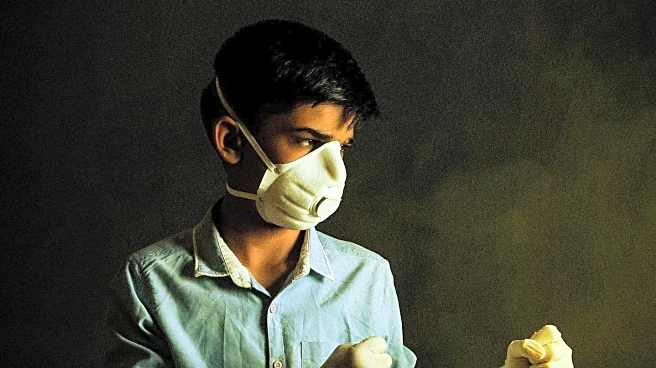What's Happening?
In Indonesia, a significant measles outbreak on Madura Island has been exacerbated by vaccine hesitancy linked to religious concerns. The outbreak has resulted in over 2,600 infections and 20 deaths this year. Health workers are actively distributing vaccines, but the use of pork-derived gelatin in the vaccines has led to hesitancy among the predominantly Muslim population. The Indonesian Ulema Council has previously declared such vaccines haram but allowed their use until a halal alternative is available. Efforts to increase vaccination rates include distributing over 78,000 vaccines through local clinics and directly to homes and schools.
Why It's Important?
The hesitancy surrounding the measles vaccine in Indonesia highlights the complex interplay between public health initiatives and religious beliefs. This situation underscores the challenges faced by health authorities in achieving high vaccination coverage, which is crucial to prevent outbreaks. The reluctance to vaccinate due to religious concerns could lead to further spread of the disease, posing a significant public health risk. The situation also reflects broader global challenges in balancing cultural and religious considerations with scientific and medical imperatives.
What's Next?
The Indonesian government and health authorities may need to engage more deeply with religious leaders to find acceptable solutions, such as developing halal-certified vaccines. Increased public health education and outreach efforts could also help address misconceptions and encourage vaccination. The international community, including vaccine manufacturers, might play a role in developing and distributing vaccines that meet religious standards, potentially setting a precedent for similar issues worldwide.









